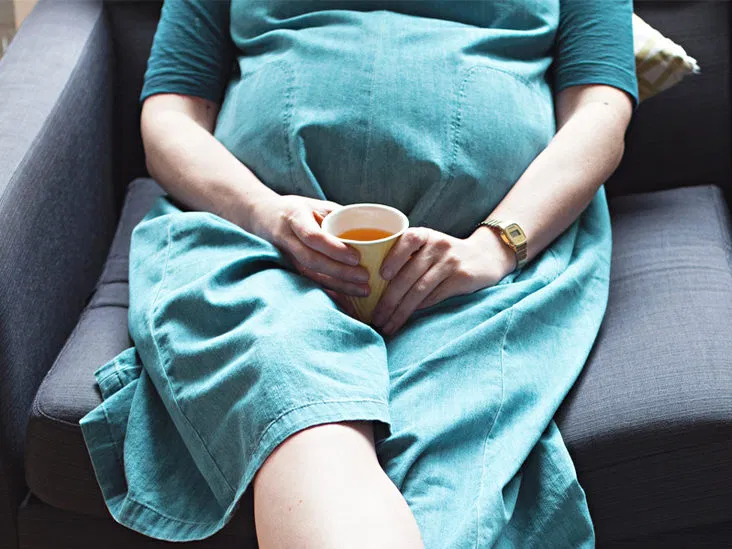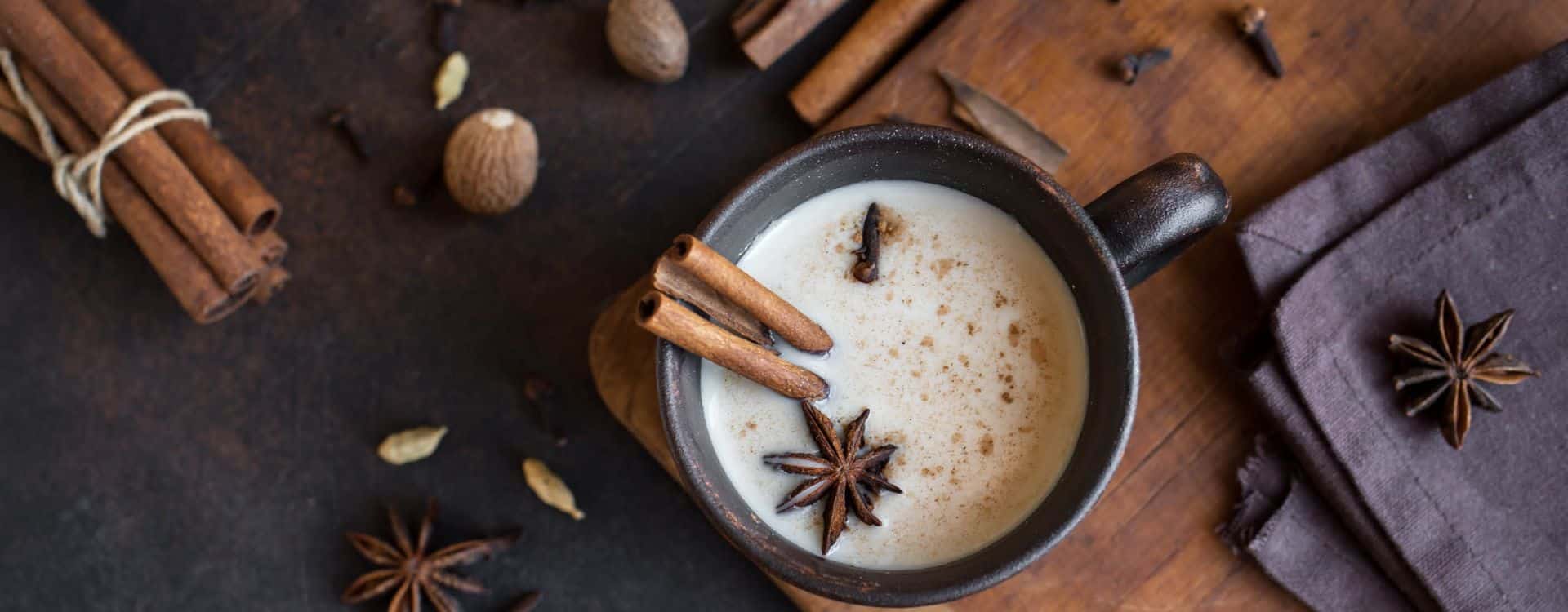Chai tea has gained immense popularity in recent years, with its rich and aromatic flavors captivating the taste buds of many. As a writer who loves exploring different cultures and their culinary traditions, I have always been intrigued by the allure of chai tea. However, when I found out that I was expecting my first child, I knew it was important to delve deeper into the topic of chai tea when pregnant.
Pregnancy is a time when women become hyper-aware of what they consume, as every bite or sip can potentially impact the health and development of their growing baby. Chai tea is no exception to this rule. It contains a blend of spices such as cinnamon, cardamom, ginger, cloves, and black pepper that not only provide an exquisite taste but also offer various health benefits.
Key Takeaways
- Chai tea can provide nutritional benefits during pregnancy, such as antioxidants and anti-inflammatory properties.
- However, chai tea also contains caffeine, which can have negative effects on pregnancy if consumed in excess.
- Some herbal ingredients in chai tea, such as licorice root, may also pose risks to pregnant women.
- Pregnant women should limit their chai tea intake and consume it earlier in the day to avoid disrupting sleep.
- Alternatives to chai tea, such as herbal teas and decaf chai, can provide similar benefits without the risks.
Nutritional Benefits of Chai Tea During Pregnancy
Chai tea is packed with essential nutrients that can be beneficial for pregnant women. The combination of spices used in chai tea provides a range of vitamins and minerals necessary for both mother and baby’s well-being.
Cinnamon is known for its anti-inflammatory properties and may help regulate blood sugar levels during pregnancy. Cardamom acts as a digestive aid by soothing an upset stomach or morning sickness symptoms commonly experienced during pregnancy. Ginger has long been used to alleviate nausea associated with morning sickness while also providing relief from inflammation.
Cloves are rich in antioxidants that support overall immune health during pregnancy while black pepper aids digestion by stimulating the production of digestive enzymes.
Potential Risks of Drinking Chai Tea While Pregnant
While there are numerous benefits associated with consuming chai tea during pregnancy, it’s crucial to exercise caution due to potential risks involved.
One concern regarding chai tea consumption during pregnancy is its caffeine content. Although traditional Indian chai recipes typically use black tea leaves containing caffeine as one ingredient, it’s important to note that excessive caffeine intake during pregnancy has been linked to adverse effects, including increased risk of miscarriage and preterm birth.
Additionally, some chai tea blends may contain herbal ingredients that could pose risks during pregnancy. It’s essential to be aware of the specific herbs used in the blend and their potential impact on pregnancy.
Caffeine Content in Chai Tea and Its Effects on Pregnancy
| Chai Tea Brand | Caffeine Content (mg) | Effects on Pregnancy |
|---|---|---|
| Teavana | 25-48 | May increase risk of miscarriage or preterm birth |
| Starbucks | 95 | May increase risk of low birth weight or developmental delays |
| Twinings | 50 | May have negative effects on fetal heart rate and blood flow |
Caffeine is a stimulant found naturally in tea leaves, coffee beans, and cocoa. While it can provide a much-needed energy boost for many individuals, pregnant women are often advised to limit their caffeine intake due to its potential effects on fetal development.
The caffeine content in chai tea can vary depending on the type of tea leaves used and the brewing method. On average, an 8-ounce cup of chai tea made with black tea contains approximately 40-60 milligrams of caffeine. This amount is significantly lower than that found in a cup of coffee but still needs to be taken into consideration when consuming chai tea during pregnancy.
High levels of caffeine consumption have been associated with an increased risk of miscarriage and low birth weight. Therefore, it’s important for pregnant women to monitor their overall caffeine intake from all sources, including chai tea.
Herbal Ingredients in Chai Tea and Their Impact on Pregnancy
Chai teas often include a variety of herbal ingredients that contribute to its unique flavor profile. However, some herbs commonly found in certain blends may have potential risks when consumed during pregnancy.
For example, licorice root is sometimes included as an ingredient due to its natural sweetness; however, excessive consumption has been linked to high blood pressure and other complications during pregnancy.
Similarly, star anise is another herb occasionally used in chai blends but should be avoided by pregnant women as it contains compounds that may stimulate uterine contractions or even lead to miscarriage.
It’s crucial for expectant mothers who enjoy drinking chai tea regularly or occasionally throughout their pregnancy to carefully read the ingredient list and consult with their healthcare provider to ensure the safety of the herbal ingredients.
Recommended Chai Tea Intake for Pregnant Women
While chai tea can offer various health benefits during pregnancy, it’s important to consume it in moderation and follow recommended guidelines.
The American College of Obstetricians and Gynecologists (ACOG) suggests that pregnant women limit their caffeine intake to no more than 200 milligrams per day. This includes all sources of caffeine, including chai tea. Therefore, it’s advisable for expectant mothers to monitor their overall caffeine consumption from various beverages throughout the day.
Additionally, pregnant women should consider opting for decaffeinated versions of chai tea or exploring herbal alternatives that do not contain any caffeine or potentially harmful herbs.
Best Time to Consume Chai Tea During Pregnancy
Timing is an essential factor when it comes to consuming chai tea during pregnancy. It’s generally recommended that pregnant women avoid consuming caffeinated beverages close to bedtime as they may interfere with sleep quality.
To minimize any potential disruption in sleep patterns, it’s best for expectant mothers to enjoy a cup of chai tea earlier in the day or during mid-morning or mid-afternoon when they may benefit from a gentle energy boost without compromising their rest at night.
Precautions to Take When Drinking Chai Tea While Pregnant
When enjoying a cup of chai tea during pregnancy, there are several precautions that pregnant women should keep in mind:
1. Read labels: Carefully read the ingredient list on pre-packaged chai teas and avoid those containing potentially harmful herbs such as licorice root or star anise.
2. Brew your own: Consider making your own homemade chai blend using known safe ingredients.
3. Limit caffeine intake: Be mindful of overall caffeine consumption from all sources throughout the day.
4. Consult with healthcare provider: If you have any concerns or questions about consuming chai tea during pregnancy, it’s always best to consult with your healthcare provider for personalized advice.
Alternatives to Chai Tea for Pregnant Women
For pregnant women who enjoy the warm and comforting flavors of chai tea but want to avoid potential risks associated with its consumption, there are several alternative beverages that can be equally satisfying:
1. Herbal teas: Opt for herbal teas made from safe ingredients such as chamomile, peppermint, or rooibos.
2. Decaffeinated chai tea: Look for decaffeinated versions of chai tea that still offer the aromatic blend of spices without the caffeine content.
3. Warm milk with spices: Create a soothing beverage by heating milk and adding spices like cinnamon and cardamom.
These alternatives provide a similar sensory experience while minimizing potential risks associated with certain ingredients found in traditional chai tea blends.
Expert Opinions on Drinking Chai Tea During Pregnancy
When it comes to discussing the safety of consuming chai tea during pregnancy, it’s important to consider multiple perspectives from experts in the field.
Some healthcare providers may advise against consuming any caffeinated beverages during pregnancy due to potential risks associated with caffeine intake. Others may suggest moderate consumption within recommended guidelines is acceptable as long as precautions are taken regarding overall caffeine intake and specific herbal ingredients used in the blend.
Ultimately, it’s crucial for pregnant women to have open conversations with their healthcare providers about their individual circumstances and preferences when making decisions regarding their diet during pregnancy.
Balancing the Benefits and Risks of Chai Tea During Pregnancy
In conclusion, enjoying a cup of chai tea during pregnancy can be a delightful experience filled with rich flavors and potential health benefits; however, it’s essential to balance these factors against potential risks associated with certain ingredients found in some blends.
Pregnant women should exercise caution by monitoring their overall caffeine intake from all sources throughout the day while also being mindful of the herbal ingredients used in chai tea blends. Reading labels, brewing homemade versions, and consulting with healthcare providers are all important steps to ensure the safety of consuming chai tea during pregnancy.
Ultimately, each expectant mother should make informed decisions based on her own preferences and individual circumstances. By striking a balance between the benefits and risks, pregnant women can savor a cup of chai tea while nurturing their well-being and that of their growing baby.
FAQs
What is chai tea?
Chai tea is a type of tea that originated in India and is made by brewing black tea with a mixture of spices such as cinnamon, cardamom, ginger, and cloves.
Is it safe to drink chai tea while pregnant?
While chai tea is generally safe to drink during pregnancy, it is important to consume it in moderation. The caffeine content in black tea can be harmful to the developing fetus if consumed in large amounts.
What are the benefits of drinking chai tea during pregnancy?
Chai tea contains antioxidants and anti-inflammatory properties that can help boost the immune system and reduce inflammation. It can also help alleviate nausea and improve digestion.
What are the risks of drinking chai tea during pregnancy?
The caffeine content in black tea can increase the risk of miscarriage and low birth weight. Additionally, some of the spices used in chai tea, such as cinnamon and ginger, can cause uterine contractions and should be consumed in moderation.
How much chai tea is safe to drink during pregnancy?
It is recommended that pregnant women limit their caffeine intake to no more than 200 milligrams per day, which is equivalent to about one 12-ounce cup of chai tea. It is important to consult with a healthcare provider to determine what amount is safe for each individual pregnancy.
Can chai tea help induce labor?
Some of the spices used in chai tea, such as cinnamon and ginger, have been known to stimulate uterine contractions. However, it is not recommended to consume chai tea for the purpose of inducing labor without consulting with a healthcare provider.
Originally posted 2024-01-18 11:37:49.




